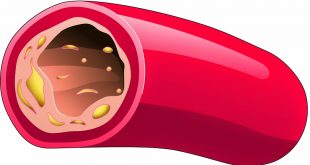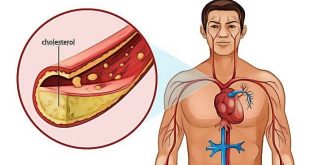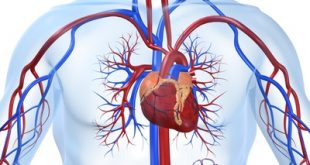“I’m going to Langkawi next week.”
“I’m going to visit my daughter in Australia next month.”
“Okay, but don’t forget to bring your medications.”
If you are planning to go for a trip or for a holiday within the country or abroad, it is important that you prepare your medications. It is actually the first thing to remember, especially if you have chronic diseases for example hypertension or diabetes.
Not complying with your usual dose of medications can lead to serious complications while traveling. For hypertensive patients for example, omission of medication during holiday might lead to uncontrolled blood pressure and that can lead to heart attack or stroke. It does not only will ruin your vacation, it will also increase your financial burden to sought medical treatment especially if you are traveling abroad. What is even more frightening is that you might not find the usual medications that you always use in that particular place. With proper planning, you can organize your medicine so that you can stay healthy while enjoying your vacation.
In general, medication management during vacation for hypertensive patients is not much different from other chronic diseases. Hypertension medication requires a prescription from a doctor. So, related general tips below may be followed.
How To Bring Your Medicine
If You Are Traveling Abroad
If you are traveling by airplane, you have to know how to store your medications. If you have prescription medication, below are the guides to bring your medication.
- Carry your medicine in your hand luggage (nevertheless check the airline’s regulations before traveling)
- Bring a copy of your prescription complete with a doctor’s note. If possible, include the generic name of the medicine. This is because medicine brand differs from one country to another and it will be troublesome for you to recognize your medicine later if the need arise.
- Please bring an official letter from your doctor explaining the reason of using certain medicines especially if you are using control substance such as sedative and tranquilizer like Clonazepam or if you are using injections.
- Make sure that you bring all the medicine in its original container which will also speed the process if your hand luggage is inspected. This means that you do not store your medicine in a pill box that you frequently use. You can put your medicine in a pill box once you arrive at your destination.
- Please check with the related authority of the place that you will visit to ensure that your medicine can be brought in. This is due to the different restriction in different country on what type of medicine and how much you can bring for your own usage.
- Medical expenditure abroad can be really expensive. Make sure you get your travel insurance before traveling.
For patients with hypertension, the medications do require a prescription. So you can follow the related instructions above on journeys abroad.
If You Are Traveling Domestically
- Please make sure that you bring enough supply of medicines and there is a surplus in case of any difficulties that will cause shortage of medicines.
- You can bring the medicine in a pill box to facilitate medication consumption when needed.
- Make sure you do not leave your medicine in the vehicle after arrival at the destination. It can get really hot in the vehicle that will cause the medicine to be less effective or spoiled.
General Rules When Traveling With Medications
- Please pack a spare supply of your medicine and a copy of your prescription in your suitcase in case you lose your hand luggage.
- Be sure to bring additional supply of your medicines because there is a possibility that you will be stranded at the airport due to a flight delay, or if there are any difficulties while on a journey that will lead to increased duration of your holiday. You do not want to miss high blood pressure medication or insulin dose due to insufficient supply.
- Make sure you keep your medicines in the original container with the label along with information such as drug name, drug strength, methods of administration and expiry date. If you fill your medicines in “pill box”, make sure you remember all your medications to avoid confusion.
- If your medicine requires cold storage, you need to make sure that the medicine is in sealed containers such as cold box or bags that have insulation. Please seek the advice of a pharmacist if you are unsure about your medicine storage.
How To Take Medicine While Travelling
In general, you should maintain a schedule of your medications as usual. Nonetheless, as we all know, when on vacation, the daily schedule will change. Here are tips to help you maintain compliance to your medicines during the journey.
- Set your medication time so you do not miss a dose of your medicine. You can use the alarm clock on your phone or you can also use applications that can be downloaded in your smartphone. Most applications can give a warning that can stimulate dialogue on medication adherence and also shows a list of drugs that can be checked daily. Hypertension medication should be consumed daily to maintain optimal blood pressure and to prevent the occurrence of heart attack or stroke.
- Note the change in time zones of your destination. You might be in different time zones that can cause alteration to your sleeping and eating arrangement. This increases the chance of missed medications. Hence, you can use the weekly pill box to help with medication adherence. In addition, reminders from family members are also very helpful for you to stay on your medication.
- Changes in dosing instructions when traveling across time zones depend on the medication and the doctor’s recommendations. You need to continue to take enough of your medication, but be cautious not to take too much as you attempt to switch to a new time zone. Ask your doctor or your pharmacist on how your particular medication should be handled.
- Since your diet may change when you’re on vacation, make sure you seek advice from your pharmacist regarding the interactions between drugs and foods that may interfere with the absorption of your medication.
- Given that your physical activity may increase during holiday, make sure to drink enough water every day. Dehydration will result to some drugs not working properly.
- Changes in diet while travelling exposes you to the risk of diarrhea (traveler’s diarrhea) and vomiting. If it persists, it can lead to dehydration. Dehydration can cause “orthostatic hypotension” symptoms such as dizziness, light headedness and maybe even faint. “Orthostatic hypotension also called postural hypotension — is a form of low blood pressure that happens when you stand up from sitting or lying down. The elderly and those taking some drugs have a higher risk to suffer from this problem. This includes patients who are taking medication for high blood pressure and heart disease, such as diuretics (hydrochlorothiazide), a group of alpha-blockers such as prazosin, calcium-channel blockers (amlodipine), angiotensin-converting enzyme group (ACE) inhibitors (perindopril) and nitrates (isosorbide mononitrate). What you can do is to make sure you drink enough water and stay hydrated throughout the day. Avoid or reduce the amount of alcohol consumed because alcohol will exacerbate this condition. In addition, you can get up slowly from a sitting or lying down position to standing up to reduce the symptoms of “orthostatic hypotension”.
When There Is An Emergency
During the journey, there are many possibilities that may occur. You have to plan ahead and be ready to make sure that your trip is not interrupted. Before leaving, you can prepare the medicine kit for traveling. You can bring the ‘over the counter’ (OTC) medicines which do not contain controlled substances or medicines that do not require a prescription from the doctor.
For hypertensive patients that have other conditions such as angina pectoris, they have to remember to bring along their emergency medication (glyceryl trinitrate (GTN) tablet) that can be put under the tongue to provide relief if there is any attack.
What Types Of Medication That I Should Bring?
Here are the lists of OTC drugs or medicines that do not require a prescription that can be taken to help you in case of emergency during the trip.
- Anti-diarrhoeal medicine- Food related infections are common and can cause diarrhoea. Medicines that can be taken are: (example charcoal, lomotil and loperamide).
- Mineral and salts powder in case of dehydration due to diarrhoea or vomiting. Medicines that can be taken are: (Oral rehydration Salts (ORS)).
- Anti-histamine medications for colds and allergies. Medicines that can be taken are: (chlorpheniramine and loratadine).
- Motion sickness medications such as during a bumpy plane ride or when travelling by boats. Medicines that can be taken are: (dimenhydrinate and meclozine+pyridoxine).
- Antacids if you are having gastritis or bloatedness. Medicines that can be taken are: (magnesium trisilicate, simethicone).
- Medicines for pain or fever. Medicines that can be taken are: (paracetamol, aspirin, ibuprofen)
- Laxative or stool softener -Changes in diet and nutrition schedule can cause constipation, so these drugs can be taken. Medicines that can be taken are: (lactulose and bisacodyl)
- Anti-fungal creams or allergies. Unusual place or weather can trigger skin problems. Medicines that can be used are: (clorimazole cream, hydrocortisone 1% cream).
- Common cough medicines. Medicines that can be taken are: (Herbal cough medicine contained honey).
In addition, if you have any allergy to any medication, please be sure to bring along your allergy card or wear a related bracelet. Please make sure you have a contact number in case of any emergency during your vacation.
You can make use of the tips above to help you to have a comfortable holiday. If you have any problems or concerns, contact your doctor or pharmacist. Travel wisely. Happy traveling!
References
- Centers for Disease Control and Prevention (2008). Travelers’ HealthPack Smart. Retrieved October 25, 2015, from http://wwwnc.cdc.gov/travel/page/pack-smart
- Picture from : Centers for Disease Control and Prevention (2008). Travelers’ HealthPack Smart. Retrieved October 25, 2015, from http://wwwnc.cdc.gov/travel/page/pack-smart
- Department of Health & Human Services, State Government of Victoria, Australia (2014). Travel Tips For Seniors. Retrieved October 29, 2015, from https://www.betterhealth.vic.gov.au/health/healthyliving/travel-tips-for-seniors
- Diana Rodriguez (2015). Securing Medications for Your Trip. Retrieved October 30, 2015, from http://www.everydayhealth.com/healthy-travel/traveling-with-medications.aspx
- Mayo Clinic Staff (2014). Orthostatic Hypotension (postural hypotension). Retrieved October 25, 2015, from http://www.mayoclinic.org/diseases-conditions/orthostatic-hypotension/basics/definition/con-20031255
| Last Reviewed | : | 06 September 2017 |
| Writer | : | Pn. Zanariah Binti Abu Bakar |
| Translator | : | Pn. Zanariah Binti Abu Bakar |
| Accreditor | : | Dr. Siti Norlina Binti Md Said |
 PENDIDIKAN PESAKIT Kementerian Kesihatan Malaysia
PENDIDIKAN PESAKIT Kementerian Kesihatan Malaysia



